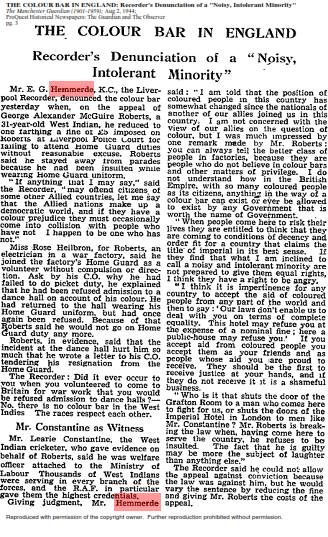Next week a few international independent election observers, and a small number of British ones, will observe the UK General Election. I shared a few points that I thought might be of interest for – lighthearted or serious – background with the team from SDAI, Sustainable Development Assistance International – Aidde International Developpment Durable.
“SDAI-AIDD is a small, independent, non-profit, non-governmental organization (NGO), based in eastern Canada.” https://www.sdai-aidd.ca/
I post some of the points here for easy reading.
At the end I add links explaining the role of tellers – party supporters who sit outside polling stations and ask voters if they have voted. These are not common in other countries I have visited for elections. Those countries also have a 24 hour campaign silence period before E-Day to allow voters peaceful reflection, which we do not have in the UK.
1). Matt election cartoons in the Daily Telegraph.
2). An example of election local news coverage from one constituency – Wrexham.
3). Last minute Voter registration rush.
4). Facebook ads, the BBC and the digital campaign.
5). The role of tellers at polling stations.
Hello everyone,
I look forward to seeing some of you next week and also meeting a few of the team for the first time.
1). I thought you might like the Matt cartoon that I saw on the front page of my Mum’s Daily Telegraph. It’s a very biased Conservative paper (not a tabloid though with as much gossip and scandal, as well as ‘Society’ and business news) but the cartoons are very good
https://www.telegraph.co.uk/news/2019/11/30/matt-cartoons-december-2019/matt-cartoon-dec-4/
You will probably need to register for a free account to view the links.
2). In addition, while looking at another news story entirely I happened upon an advert for the election coverage by one local news site. I just thought it was a good example of localised election candidate and constituency information, in a public service type way.
http://www.wrexham.com/election2019/
This is just for two constituencies around one town, Wrexham, in North West Wales, so gives you a little local picture.
3). As you may know, the UK does not have automatic and continuous election registration. Before each election there is a rush to encourage people to register to vote. Many who want to vote miss the deadline – which is earlier than in the Eastern European countries that I’ve visited on EOMs.
This year more people registered on the last day than ever before. There was much coverage of this on Twitter. E.g. this tweet from the Electoral Reform Society highlights how 1 million more people registered during the election period this time than last time:
2.8m applications to #RegisterToVote since the election was called.
On November 25 they wrote:
There were an estimated 9m missing from the electoral roll as of December 2018 – so there’s still a long way to go to close the gap.
Tuesday is the last day to register before the election – deadline MIDNIGHT. Keep spreading the word #RegisterToVote
4). I’m also attaching a scan from the New European newspaper, from the end of August, which is the only article that I’ve seen before the election analysising the political parties’ spend on social media. This election the BBC is doing a lot of work analysing the digital campaign, more than before. See: https://www.bbc.co.uk/mediacentre/latestnews/2019/election
and some more information below.
I’ll also pop these links in the OSCE election observers Facebook group that many of us belong to.
Best wishes,
Kiron, Liverpool.
PS you can set many of the Matt cartoons here: https://www.telegraph.co.uk/news/matt/
Unsurprisingly many of the recent ones are political and I don’t think you need to be British to get the jokes. The picture on yesterday’s front page of Donald and Melania outside 10 Downing Street seemed like a joke Christmas card but that one was real.
https://www.bbc.co.uk/news/amp/technology-50375293
Online election ads – who is targeting whom?
By Rory Cellan-Jones
Technology correspondent
11 November 2019
https://www.bbc.co.uk/news/amp/election-2019-50388879
https://www.bbc.co.uk/mediacentre/latestnews/2019/election
Huw Edwards to lead BBC’s Election 2019 coverage
Date: 04.11.2019 Last updated: 08.11.2019 at 14.41
Making sense of the election
..
The BBC will have its first Digital Election Reporter, Joe Tidy, who will work alongside the BBC’s Media Editor Amol Rajan, focusing on the all-important digital campaigns being run by the parties and the vital role social media will play in the election.
5). Tellers.
As I wrote “You need some explanation of what happens at polling stations – specifically the presence of party tellers, which observers might meet”. The voting, verification and counting procedures in the UK are all pretty simple but different to other countries in North America, Europe and the former Soviet Union where the OSCE observe and international observers with the OSCE (the organisation I work with from time to time) are often not familiar with party representatives being present outside polling stations.
C. The role of tellers.
I attach the guidance poster from the Electoral Commission, 2017 version.
Tellers’ dos and don’ts (PDF)
This document contains a summary of what tellers can and must not do and should be read in conjunction with any guidance issued locally by the Returning Officer
https://www.electoralcommission.org.uk/sites/default/files/pdf_file/Tellers-dos-and-donts-generic.pdf
That is one page. I don’t think anyone needs to read the four page detailed guidance for tellers. Which is this one:
https://www.electoralcommission.org.uk/sites/default/files/pdf_file/Tellers-guidance-generic.pdf
Political-ads-social-media-UK-TNE-29-Aug-2019.pdf (4708 downloads )
Tellers-dos-and-donts-generic-EC-2017-1.pdf (4737 downloads ) 